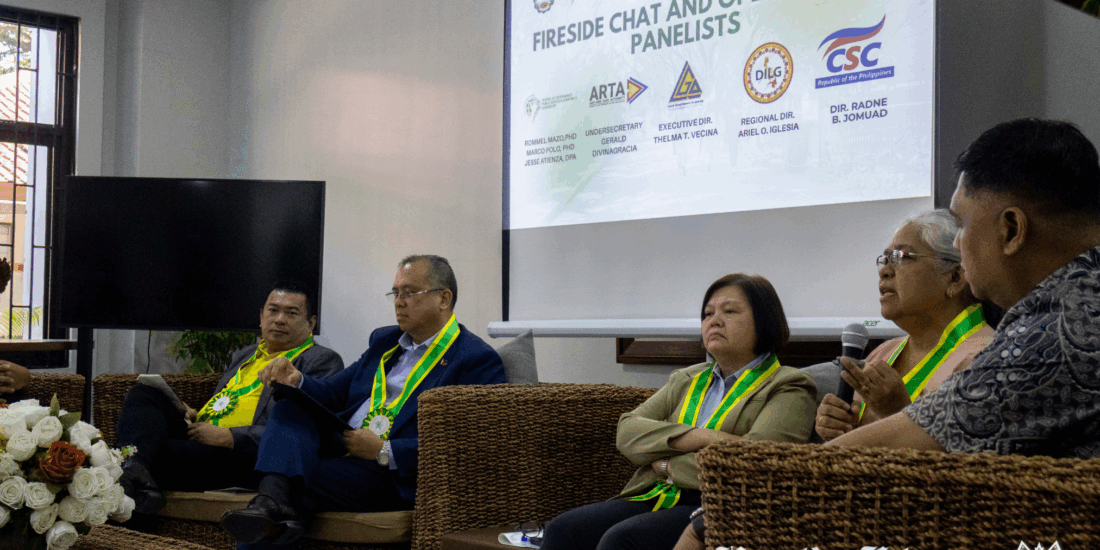Passive-regressive
There seems to be a University-wide virus spreading around the campus—most known for its colloquial term—passivity. The burden of always being branded the passive youth can be a difficult sword to carry, especially when we’re the ones falling on it everyday. It would be easy to just dismiss this as a fatal millennial flaw, but truth be told, passivity is just a smaller part of the spectrum in our method of handling grim situations.
It’s not that the youth doesn’t care—it’s just that, too often, we’re held back by the crippling thought that we are not of use. Although there are instances wherein we’re slowly and surely defying these expectations, the sad truth is that in a University wherein free speech is not so easily accepted and the “pangsarili” mentality is regularly practiced, our development as people of society is hindered. Considering that—excuse the clichéd line—the future of the world is in the hands of the youth, simply being a bystander in the ever-changing world and community has become an inexcusable sin. Just like when the Philippine National Police van reportedly rammed protestors in front of the US Embassy on October 19, awareness and the wide dissemination of the injustice surrounding the Lumad people only took place after our fellow Filipinos had been injured in the process. The sad truth is that this much publicity of the minority group would never have spread if the unfortunate event did not even happen.
“…even if we try so hard to be decent people…we often overlook the fact that by staying put and allowing injustices to thrive, we orchestrate or own fall from grace.”
Whether we admit it or not, there is a dark cloud called the bystander effect that has taken over how we live our lives. It’s really quite easy to be affected by this dangerously tempting disease—to just watch the world go by without saying a single word. As Filipinos, this can be the go-to habit to simply flip on the news and watch the faith of the country be manhandled by those in charge. However, the shattering effects of simply serving as a stand-in for your true inner convictions is not only an insult to the person you are, but also a great burden for the people around us.
A real-life example of this would be the 18-year old student stabbed to his death on the way home from school. Reportedly, people had heard his screams, but out of fear, failed to help. Through it all, even if we try so hard to be decent people—at least most of us—and try to lessen our wrongdoings, we often overlook the fact that by staying put and allowing injustices to thrive, we orchestrate or own fall from grace.
We are not entirely at fault for being this way, because more often than not, repression also plays a huge part in whether or not we choose to speak out. In a community like our University that envelops continuity, sweeping things under the rug has been the go-to action for hefty things that require cleaning and serious admission of fault. The forgive and forget mentality has been going on for so long that it’s come to a point that even when we are no longer happy with what’s happening in the campus—and that happens often—our response is to shrug off the disappointment and proceed to forget how we feel and how we can make things better.
To fight and eventually finish the bystander effect inflicted on us, we must see beyond our horizons and face the fact that sooner or later, we will be the ones in charge of the system. We must open our eyes and see the world for what it really is: not a big bad system out to corrupt us and take away our souls, but a canvass in which we must paint a meaningful streak—and eventually create our own image for the future. If we continue to be shackled by the idea that our community has been prewritten for us and continue to keep quiet and assume that the future is simply a paint-by-numbers type of design, then we are the ones responsible for the passivity in the first place—the main reason we backtrack as a University.
***
When the system is spoiled, we’ll have nothing to feed our minds with and no fuel to spark our fire to speak. Even though the easiest thing to do is feign numbness to the outside world, we must not let this disease eat us away. At the end of the day, the world is vastly a much bigger place than where we choose to quarantine ourselves in. Where we are right now as a nation will never determine where we will eventually go—and if we never move, there’s no saying how worse it can get.




